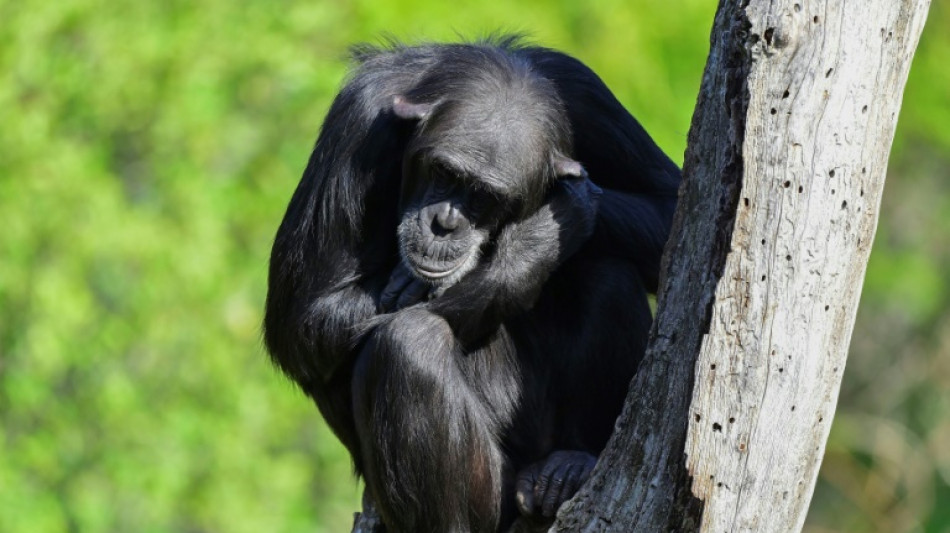
-
 Private donors pledge $1 bn for CERN particle accelerator
Private donors pledge $1 bn for CERN particle accelerator
-
Russian court orders Austrian bank Raiffeisen to pay compensation

-
 US, Qatar, Turkey, Egypt to hold Gaza talks in Miami
US, Qatar, Turkey, Egypt to hold Gaza talks in Miami
-
Lula open to mediate between US, Venezuela to 'avoid armed conflict'

-
 Brussels farmer protest turns ugly as EU-Mercosur deal teeters
Brussels farmer protest turns ugly as EU-Mercosur deal teeters
-
US imposes sanctions on two more ICC judges for Israel probe

-
 US accuses S. Africa of harassing US officials working with Afrikaners
US accuses S. Africa of harassing US officials working with Afrikaners
-
ECB holds rates as Lagarde stresses heightened uncertainty

-
 Trump Media announces merger with fusion power company
Trump Media announces merger with fusion power company
-
Stocks rise as US inflation cools, tech stocks bounce

-
 Zelensky presses EU to tap Russian assets at crunch summit
Zelensky presses EU to tap Russian assets at crunch summit
-
Pope replaces New York's Cardinal Dolan with pro-migrant bishop

-
 Odermatt takes foggy downhill for 50th World Cup win
Odermatt takes foggy downhill for 50th World Cup win
-
France exonerates women convicted over abortions before legalisation

-
 UK teachers to tackle misogyny in classroom
UK teachers to tackle misogyny in classroom
-
Historic Afghan cinema torn down for a mall

-
 US consumer inflation cools unexpectedly in November
US consumer inflation cools unexpectedly in November
-
Danish 'ghetto' residents upbeat after EU court ruling

-
 ECB holds rates but debate swirls over future
ECB holds rates but debate swirls over future
-
Pope replaces New York's Cardinal Timothy Dolan with little-known bishop

-
 Bank of England cuts interest rate after UK inflation slides
Bank of England cuts interest rate after UK inflation slides
-
Have Iran's authorities given up on the mandatory hijab?

-
 Spain to buy 100 military helicopters from Airbus
Spain to buy 100 military helicopters from Airbus
-
US strike on alleged drug boat in Pacific kills four

-
 Thailand strikes building in Cambodia's border casino hub
Thailand strikes building in Cambodia's border casino hub
-
Protests in Bangladesh as India cites security concerns

-
 European stocks rise before central bank decisions on rates
European stocks rise before central bank decisions on rates
-
Tractors clog Brussels in anger at EU-Mercosur trade deal

-
 Not enough evidence against Swedish PM murder suspect: prosecutor
Not enough evidence against Swedish PM murder suspect: prosecutor
-
Nepal's ousted PM Oli re-elected as party leader

-
 British energy giant BP extends shakeup with new CEO pick
British energy giant BP extends shakeup with new CEO pick
-
Pulitzer-winning combat reporter Peter Arnett dies at 91

-
 EU kicks off crunch summit on Russian asset plan for Ukraine
EU kicks off crunch summit on Russian asset plan for Ukraine
-
Lyon humbled to surpass childhood hero McGrath's wicket tally

-
 Sri Lanka plans $1.6 bn in cyclone recovery spending in 2026
Sri Lanka plans $1.6 bn in cyclone recovery spending in 2026
-
England vow to keep 'fighting and scrapping' as Ashes slip away

-
 'Never enough': Conway leans on McKenzie wisdom in epic 300 stand
'Never enough': Conway leans on McKenzie wisdom in epic 300 stand
-
Most Asian markets track Wall St lower as AI fears mount

-
 Cambodia says Thailand bombs casino hub on border
Cambodia says Thailand bombs casino hub on border
-
Thai queen wins SEA Games gold in sailing

-
 England Ashes dreams on life-support as Australia rip through batting
England Ashes dreams on life-support as Australia rip through batting
-
Masterful Conway, Latham in 323 opening stand as West Indies wilt

-
 Danish 'ghetto' tenants hope for EU discrimination win
Danish 'ghetto' tenants hope for EU discrimination win
-
Cricket Australia boss slams technology as Snicko confusion continues

-
 Conway and Latham's 323-run opening stand batters hapless West Indies
Conway and Latham's 323-run opening stand batters hapless West Indies
-
Alleged Bondi shooters holed up in hotel for most of Philippines visit

-
 Japan govt sued over 'unconstitutional' climate inaction
Japan govt sued over 'unconstitutional' climate inaction
-
US approves $11 billion in arms sales to Taiwan: Taipei

-
 England battle to save Ashes as Australia rip through top-order
England battle to save Ashes as Australia rip through top-order
-
Guarded and formal: Pope Leo XIV sets different tone


Chimps are upping their tool game, says study
"Planet of the Apes" may have been onto something.
Chimpanzees are steadily honing their tool-using skills -- a process unfolding over millennia, driven by the exchange of ideas through migrations between populations, according to a new study published Thursday in Science.
The finding in chimps -- humans' closest living relatives -- holds relevance for us too, as it supports the idea that, deep in the mists of time, our own ape ancestors leveraged social connections to improve their technologies, lead author Cassandra Gunasekaram told AFP.
Scientists have long marveled at chimps' ability to pass down intricate behaviors, like tool use, from one generation to the next.
Yet while human civilization has leapt from the Stone Age to the Space Age, chimpanzee "culture" -- defined as socially learned behaviors -- seemed to have remained static.
Gunasekaram, a doctoral student at the University of Zurich, set out to challenge this assumption.
- Connections spark innovation -
She and colleagues combined genetic data tracing ancient chimpanzee migrations across Africa with observations of 15 distinct foraging behaviors across dozens of populations and the four subspecies.
These behaviors were categorized into three levels: those requiring no tools, those with simple tools, like using chewed leaves as a sponge to absorb water from tree holes, and the most complex, which involve toolsets.
One striking example of toolset use comes from Congo, where chimps use a stout stick to bore a tunnel into the ground to reach a termite nest, then modify a plant stem by chewing its tip into a brush to "fish" for termites in the tunnel they've made.
The study found that advanced tool use strongly correlated with populations connected by genetic exchanges over the last 5,000–15,000 years, suggesting such behaviors spread when groups interacted.
Areas where three subspecies overlap exhibited the most complex tool use, highlighting how cross-group connections foster cultural knowledge.
By contrast, simpler behaviors, such as foraging without tools, seemed less tied to migration and likely evolved independently in different regions.
- Foraging efficiently -
Gunasekaram said this mirrors how trading ideas and incremental innovation have been critical to human technological progress, taking us from early abacuses to modern smartphones.
"They've become so complex that one person alone could not reinvent them from scratch," she said.
But unlike humans, chimps have far fewer opportunities to encounter new individuals and ideas -- migrations occur gradually, driven by sexually mature females moving to new communities to avoid inbreeding.
Analyzing ancient genetic flows helped the team overcome one of the biggest challenges in studying the evolution of chimpanzee culture: the limited window of observation, as the species has only been researched scientifically for about a century.
What's more, "Chimpanzee tools are made of sticks and stems, which are all perishable," Gunasekaram explained, making it nearly impossible to trace how their artifacts have evolved over time.
So, will chimps one day rival human ingenuity? Hardly. But given enough time, they could become more efficient foragers.
For example, some populations are already more advanced in cracking nuts with hammers and anvils made of stone , and one particularly innovative group has even invented a stabilizer for the anvil, said Gunasekaram.
P.Stevenson--AMWN


